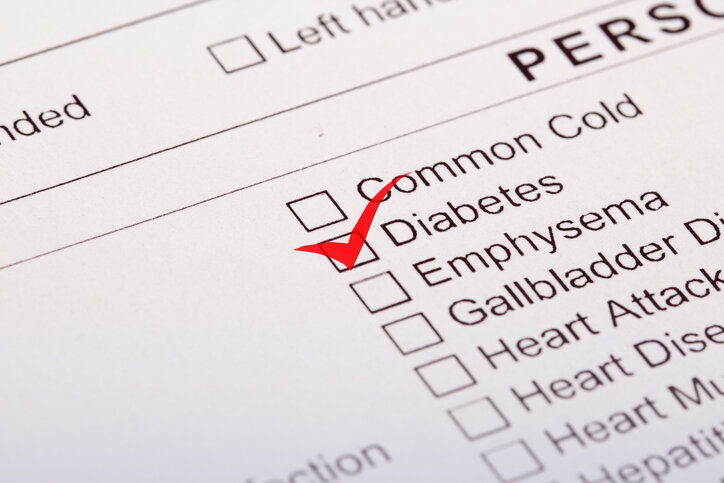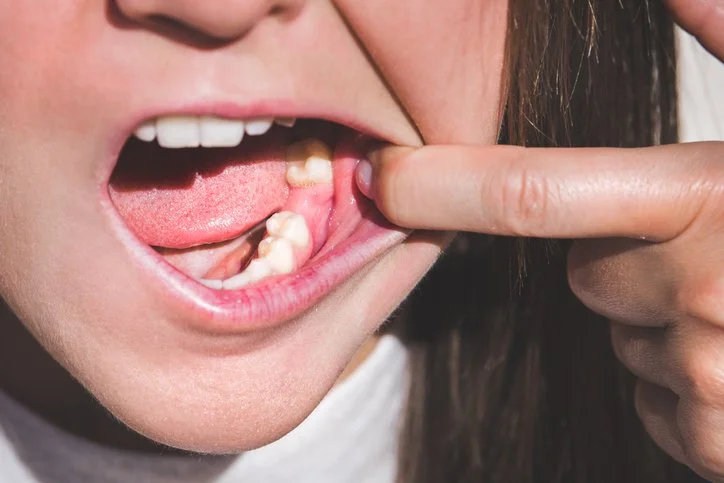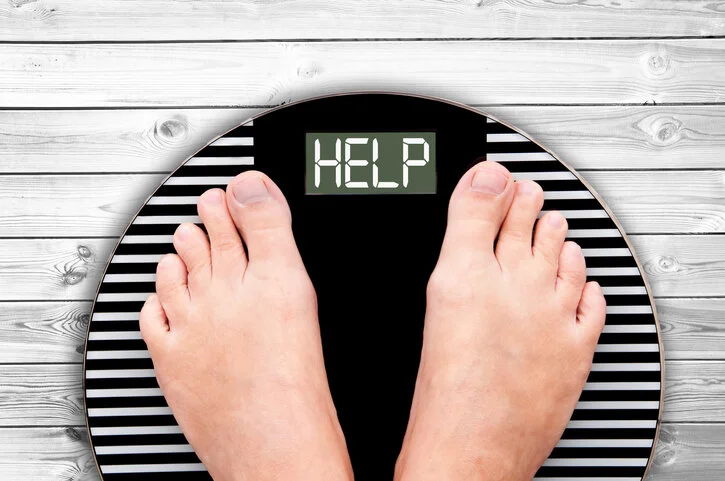Our Medical and Dental Health Status: Worse Than You Think
Every workday, I review my patients' medical histories. It is usual for most of them to have health issues. Upon reviewing their medical problems with them, I find that their lifestyles are frequently partially and sometimes wholly responsible for their poor health. Today I thought it would be good to do some statistics, and I want to share my results with you. You will probably be surprised how unhealthy we are. Before we continue, let me ask you a few questions. What percentage of Americans have an illness? What percent are on prescription medication? What percentage of us have allergies? What percent are overweight? How many missing teeth does the average person have? Ready for the answers? Make sure you are sitting down. The figures are not pretty.
Average Age
Today's patients ranged from 31 years of age to 74, giving me a 56.6-year-old average. The national average is 38.2. (1) Since I only see adults, my average is higher. Speaking of age, the number of people dying per 100,000 has been on the rise for over eleven years. The last eleven years have brought an increase in cell phone and computer screen use. As a result, maybe we spend less time together, which is harmful to our health. I have written about this before here. Another problem with cell phones and tablets is their emission of blue light, which disrupts sleep. Lack of sleep shortens lives. (2). The food supply is increasingly becoming more and more highly processed. As a result, our nutritional needs are not being met. We are overfed and undernourished, which increases the likelihood and severity of diseases. The result is that we now expect the current generation to have a shorter life expectancy. (3)
Average Number of Underlying Medical Issues
My sample had an average of 2.3 conditions each. 70% of my patients had at least one medical condition, close to the national average of 78%; a shocking statistic. (4) The average age of the three people with no conditions was 42, and none were obese or overweight. As expected, the average age of patients with medical conditions was 63. The older we get, the more likely we are to have a chronic illness. Physical inactivity, poor diet, environmental and industrial toxins, and psychological stress are to blame. (5)
Average Medications
60% of my patients were on medications. The national average is 55%. (6) The average number of prescriptions for chronic medical conditions for my patients was 2.9 per person. For those taking medication, the average jumped to almost five medicines per. I see this trend often. Once prescribers get going, they usually don't stop at one. Lifestyle modifications are the best way to help cure chronic ailments in many instances, but the changes and the effort involved can be daunting. By contrast, taking medication requires almost no effort.
Average Allergies
The average patient today had 1.1 allergies each, spread amongst 40% of my patients. 30% of adults and 40% of children are the national averages. (7) For those with allergies, their average was 2.75 allergies each. High amounts of processed carbohydrates, alcohol, medications, and stress can lead to a "leaky gut." The term refers to the increased permeability in our intestines that allow foreign substances into the body. The result is chronic systemic inflammation and potential allergic reactions to foreign substances. Sometimes the body cross-reacts, causing an autoimmune disease like Lupus, vitiligo, or arthritis.
Average Missing Wisdom Teeth
60% of my patients were missing all of their wisdom teeth. The national average is estimated to be as high as 85%. (8) A complete 90% of my sample had at least one missing one. The average number of missing wisdom teeth was 2.9 overall.
Wisdom teeth are removed when the jaws are too small. Today's sample shows that most of us don't develop large enough jaws to space for them. The main reasons for this are lack of nutritious food, not breastfeeding, and soft foods. You can read my post on the subject here. The post will be helpful if you are planning on having children or have very young ones.
Average Number of Missing Teeth (Wisdom Teeth Excluded)
My sample was missing an average of 2.4 teeth. Overall, 50% had missing teeth other than wisdom teeth. The national average for people 20 to 64 years of age is about seven missing teeth. (9) This figure includes wisdom teeth, so if you add my totals, my patients were only averaging 5.3 missing teeth. The discrepancy is most likely due to my office's higher-income area and the small sample size. Keeping your teeth is very important; it can prolong your life.
A paper from 2000 by Freidman and Lamster looked at centenarians and found that they had more teeth than those who died younger. (10) Oral infections lead to tooth loss, systemic inflammation associated with obesity, diabetes, cancer, heart disease, Alzheimer's disease, and more, shortening lives considerably. Juxiang Peng and associates reviewed 18 previous studies and concluded that the relationship between tooth loss and susceptibility to all-cause mortality is measurable. They claim the association because tooth loss represents a lifetime of poor oral hygiene, leading to oral infections associated with multiple adverse health effects, including epilepsy, cognitive impairment, ischemic heart disease, heart failure, stroke, peripheral vascular diseases, and cancer. (11)
Number of Overweight Individuals
50% of my patients were noticeably overweight. The national average for adults over 20 is a whopping 73.6%. (12) One of them recently lost weight and was no longer overweight. Good for him. The five overweight people had a higher incidence of chronic illnesses at 3.2 per. They had over twice the conditions of the average weight patients who had only 1.4. Sedentary lifestyles, processed carbs, stress, lack of sleep, and overconsumption of calories are a few of the likely culprits. Obesity and overweight in adulthood are associated with lower life expectancies similar to those seen with smoking. (13)
Conclusion
Our life expectancy is going down
70% of Americans have at least one chronic illness
55% of Americans are on prescription medications
30% of Americans have allergies
Most Americans have jaws too small to fit their wisdom teeth
The average American adult is missing seven teeth, and missing teeth shorten lives
Over 73% of Americans are overweight or obese
What Can We Do About Our Terrible Health Plight?
Processed carbohydrates in the diet are a significant cause of our poor health. Processed carbohydrates are bread, pasta, cookies, crackers, cereals, candy, sugar-sweetened drinks, etc. They are not natural to the human diet, having entered it only about 10,000 years ago, which is a fraction of our time on this planet.
Other contributors to our unhealthy population are seed oils like canola, soybean oil, corn oil, safflower oil, cottonseed oil, etc. They are also recent additions to our diet, having entered about 100 years ago. They are highly processed and promote chronic inflammation.
A simple step to improving our health status is giving up processed carbs and industrial seed oils.
The goal to remove processed carbs (including gluten-free items) and seed oils takes practice, but it becomes easy with a bit of practice. Examples of How You Can Improve Your Health Through Smarted Dietary Choices:
Menu Item: Hamburger with fries
Order the hamburger. Skip the bun. Add extra lettuce and tomato. Add a fried egg and real cheese. Maybe some bacon occasionally. Skip the fries and ask for sautéed veggies. Don't order soda. Have an unsweetened iced tea.
Menu Item: Seafood marinara over pasta
Order the seafood marinara. Substitute broccoli for the pasta. Don't eat the bread; ask for a cheese plate instead.
Menu Item: Lobster Mac and Cheese.
Ask for the lobster by itself with some melted butter to dip it in. Get a side of cheese.
As tricky as modifying your diet may seem, it is far easier than the standard recommendations of calorie restriction. Remember that a journey of a thousand miles begins with one step. Give it a try; you have everything to gain: better health.





